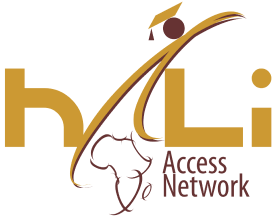Podcast Episodes 2 and 3 – Meet our Cohosts: Quincy, Janet and Habiiba
February 3, 2021 PODCAST
Helen Leale-Green, founder and CEO of Our Moon Education is hosting the HALI Access Network’s podcast. We welcome you to listen to episodes two and three which is out now. This episode introduces Helen as well as her co-hosts Janet, Quincy and Habiiba. Janet and Quincy discuss some of the work that they have been involved in recently, as well as their experiences with studying abroad for university.
Quincy, a Zambian student at the University of Edinburgh who is studying Economics and Finance, talks about her discourse series that she has started with a group of around twenty of her friends studying abroad and in Zambia.
This series discusses some of the issues facing Africans, and specifically Zambians today, including the deliberate mental colonisation of Africans, as well as the portrayal of Africans as bystanders in their own history. This leads to the perpetuation of colonial thinking and has an impact on African struggles today. The group believes that conversations can lead to a change in the internal and external perceptions of Africans, shaping power relations and possibly leading to a reclamation of African stories.
Janet is also a Zambian student at Edinburgh University. She is currently in her third year studying civil engineering and, like Quincy, is a member of the MasterCard Foundation Scholarship Programme. She shares her experience of participating in a competition this summer to address water scarcity in the Sahel. Through her research she learnt about the impact of climate change on water scarcity in the area. She also talks about how the lack of data on the issue makes it difficult to come up with solutions to the problem.
Finally, everyone reflects upon the process of building a community from home when studying abroad. Connections can be found in shared experiences, languages and food.
Habiiba
In our third HALI Access Network podcast, we meet Habiiba . Habiiba is a former student of Pestalozzi and Our Moon, and is a recent graduate from UC Berkeley in the United States. Habiiba described her experience joining Model United Nations and how it was an important way for her to insert the African Voice into international relations.
Through my involvement in Model United Nations, I was able to explore my areas of interest in-depth. In my final year, I was successfully elected to be head chair for the Model United Nations (MUN) African Union. Through this role, I explored topics including the Africa-China relationship, the path to financial independence for countries in Africa, and how different kinds of governments aid political transitions. In organising the MUN, I thought through ways of making international relationships more beneficial for all groups involved. Participation allowed me to think deeply about the relationships between countries in Africa and China in particular. This is a topic that still bothers me today, although people may not be talking about it as much as I would like.
Another topic that Habiiba explored deeply was the path to financial independence for countries in Africa. She believes corruption is a key challenge for countries to reach financial independence in Africa. Habiiba argues that leaders of these countries must be held accountable in order to achieve financial independence.
We hope you enjoy listening to our podcast. Look out for our next episode in two weeks’ time!
Share this:
